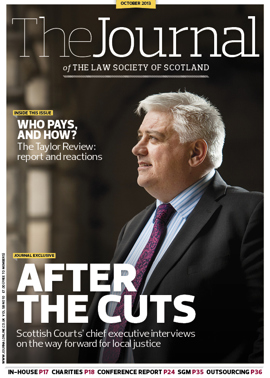Shale gas: a complex process

This article focuses on the Scottish legal framework for the extraction of shale gas. A number of licences have been granted for the identification, exploration and extraction of shale gas ain England. Shale gas reserves as well as coal bed methane gas (found in coal seams) are known to exist in Scotland.
Shale gas has the potential to be a significant indigenous source of gas for the UK. There are of course tensions in relation to the use of a carbon-based fuel, and how this sits with addressing climate change.
Extraction thus far has proven to be controversial, particularly in relation to the low magnitude earthquakes experienced in Lancashire in 2011 and the potential for ground water and surface water contamination. On 13 December 2012 Ed Davey, Energy & Climate Change Secretary, announced that a moratorium on extraction by hydraulic fracturing, or “fracking”, had been lifted. Generous tax incentives for developers were granted by the UK Government in July 2013.
Shale gas is the natural gas (predominantly methane) used domestically and to generate electricity. It is found deep below ground, trapped within shales, fine-grained sediments in which organic matter was deposited millions of years ago.
Specialised extraction processes are required, developed mainly in the US. After initial exploration, extraction can be undertaken through both vertical and horizontal drilling (to increase the volume of rock that can be accessed). This may be by fracking, the pumping of water and specialised chemicals into a borehole at pressures high enough to fracture the surrounding rock and release the gas, but it is important to recognise that not all shale gas extraction relies on fracking.
Permission to exploit
The legal framework for extraction of shale gas is complex, and there is no “one stop shop” for consents. Sites are subject to lengthy lead-in times with detailed assessments and public scrutiny. The primary consents and rights required are as follows.
Shale gas is owned by the Crown. In order to extract it, a petroleum exploitation and development licence (“PEDL”) under the Petroleum Act 1998 is required from the Department of Energy & Climate Change (“DECC”). PEDLs are issued on a competitive basis in “licence rounds” and authorise a developer to search for and extract shale gas over potentially a large area of ground, subject to conditions. A developer must demonstrate appropriate and acceptable financial, technical and environmental capabilities. DECC consent will be required before fracking can take place, operators being required to submit a fracking plan which demonstrates how seismic and other risks will be properly managed.
Although a PEDL will cover a very large area, the developer will need to identify particular sites suitable for appraisal, exploration and extraction. For those particular sites the developer will need to obtain rights over and under the land affected, as these are not conferred in a PEDL. The developer will either purchase the land or secure adequate property rights through a lease or licence. Other parties with interests in the land (e.g. tenants and mineral owners) will also require to be considered and their consent obtained. Compulsory rights for activities associated with extraction may be available.
There is a potentially complex interface where extraction affects the Coal Authority’s interest. The 1994 Coal Industry Act clarified that the ownership of methane did not rest with the Coal Authority, even where associated with coal seams. As a petroleum product, the Crown owns the methane associated with coal, and rights to the gas are regulated by DECC under the 1998 Act, but the developer will also require consent from the Coal Authority under the 1994 Act. Additional complexities arise where coal and shale gas extraction are proposed at or near the same location, and both parties will need to enter into sufficient agreements to ensure the co-existence of these rights.
Further consents
PEDLs do not give consent for drilling or any other operations which will require planning permission. Shale gas extraction by whatever method requires planning permission under the Town and Country Planning (Scotland) Act 1997. Planning permission must be obtained from the local planning authority, and there are rights of appeal to Scottish ministers against a refusal, deemed refusal (delay), or unacceptable conditions imposed on a grant. Environmental impact assessment is also likely to be required. Significant environmental effects are likely to include, but are not limited to, impacts to ground and surface water, noise and traffic. Planning authorities will need to ensure that the project will not have unacceptable adverse impacts on human health or the natural or built environment.
A “CAR” licence will be required from SEPA under the Water Environment (Controlled Activities) (Scotland) Regulations 2011 for constructing a borehole greater than 200 metres; and also to authorise the discharges of drilling or fracturing fluid to groundwater, or to surface water and abstractions, with the aim of preventing significant adverse impacts on the water environment.
The Health & Safety Executive will also have an important role to play in ensuring that well design and operational plans are approved of in advance of drilling.
In this issue
- Jewel in the crown, or just red tape?
- In the public interest
- Sweeney: room for manoeuvre
- Lost in translation?
- EU Fundamental Rights Agency: the missing link?
- Reading for pleasure
- Opinion column: Stephen Gold
- Book reviews
- Profile
- President's column
- FM officially opens new MBH
- Feeling the squeeze
- Litigation: a numbers game
- Mythbusting! The in-house IT top ten
- Charities and the changing legal landscape
- Heir finding: the sensitive side
- Sign up to boost charity giving
- Law, but not as we know it
- All the permutations
- The truth, the whole truth...
- Shale gas: a complex process
- Expenses up to date?
- Scottish Solicitors' Discipline Tribunal
- Room at the top?
- Here comes the flood?
- SGM decision kills "sep rep"
- Outsourcing: the straight and narrow
- How not to win business: a guide for professionals
- Properly engaged?
- Ask Ash
- Sep rep: what now?
- From the Brussels office
- Law reform roundup






